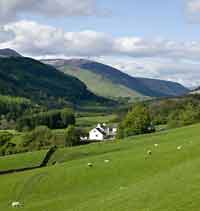Scotland’s single payment rules to be revamped

The Scottish Government is to tighten the rules on undergrazing to ensure that from 2011 only active farmers have access to Single Farm Payment (SFP).
Rural Affairs secretary Richard Lochhead has approved changes which will mean that farmers receive subsidies based on the level of productive and environmental activity.
The move follows the inquiry into the future of farming support by Brian Pack which emphasized the strength of feeling in the industry that farmers who carry out little or no farming activities should not be eligible for support.
Mr Pack recommended that Scottish legislation on undergrazing and the accompanying guidance for Scottish Government inspectors should be tightened to ensure SFP only went to active farmers.
Mr Lochhead said: “The industry and the Scottish Government are united in wanting financial support for agriculture delivered to only those carrying out genuine activity.
“As time goes by, we are all agreed that continuing to base payments on levels of activity carried out years ago is plain wrong.
“Although this remains a complex issue to resolve, hopefully so called slipper farmers will now see that the writing is on the wall.
“Tightening the rules to ensure that land has to be grazed and kept in good condition will strengthen the link between Single Farm Payments and farming activity.”
NFU Scotland president Jim McLaren welcomed the announcement and said the recommendations would go a long way towards addressing the current situation which allows farmers who are doing very little to receive support in the form of the SFP.
He added: “Now that the broader principles of the recommendations have been agreed upon, we will be working very closely with the Scottish Government to ensure that the finer details of the activity rules are correct, ahead of the implementation of the active farming rules for the 2011 scheme year.
“It is not going to be easy to ensure the system hits the right targets, however the Pack inquiry has outlined a useful way ahead by ensuring there is a minimum level of agricultural management happening on the ground.”
